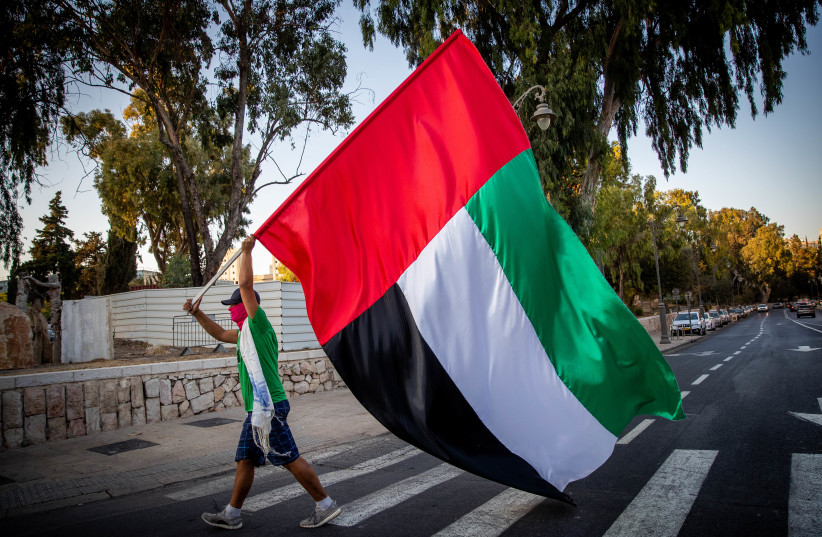Syrian leader Bashar Al-Assad’s visit to the United Arab Emirates was an important milestone for the Assad regime, isolated during a decade of the Syrian civil war.
Now Assad is coming in from the cold, his only real access to the outside world having been via allies Iran and Russia.
This is symbolic because the UAE has been on the fence over the Russian invasion of Ukraine. The UAE abstained from a UN Security Council vote condemning the Russian invasion in early March, appearing to weigh up the emerging new world order, along with China and India, as Russian tanks sought to crush Ukraine’s independence.
This past year the UAE has been working to encourage the Syrian regime’s acceptance in the region. Egypt also has opened up to Assad. Their argument is that the Assad regime is a kind of bulwark against the chaos unleashed by the Syrian civil war.
For Egypt and the UAE the threat in the region is the Muslim Brotherhood, with ties to Hamas and also to Ankara.

It’s worth noting therefore that the UAE has also patched up ties with Ankara amid high-level visits to Turkey. Israel’s president also visited Turkey, so this is not about a simple struggle of alliances in the region.
Rather, the UAE has also tried to improve ties with Iran. Many things are shifting slowly in the Middle East. This comes amid talk of a new Iran nuclear deal, a cold shoulder for Turkey in Washington and a general sense that the US is withdrawing from the region.
The Assad visit could also have implications for Assad’s hosting of Iranian forces which threaten Israel from Syria and destabilize Iraq and Lebanon.
If Assad feels he has more backing from Abu Dhabi he could be persuaded to reduce Iran’s presence. Iran won’t like that and will likely say “no.”
Nevertheless, it could give Assad breathing space and room to maneuver. In the early 2000s there were hints that Assad might move away from Iran and even seek closer ties not just with the West but to solve issues with Israel. That was a long time ago. However, the UAE now has ties with Israel. This means the region is facing a new world order.
The visit is clearly important for Syria-UAE ties and might lead to state visits by Assad across the region, Egypt being the next. Syria already has good ties with Iraq and Iran.
It’s entirely possible that Turkey could one day try to rekindle ties with Damascus as well. That would probably mean Turkey’s withdrawal from Syria. Turkey has brutally occupied the Afrin region of Syria for four years, ethnically cleansing it of its Kurdish population, persecuting religious minorities such as Yazidis and resettling extremists in the area.
Turkey has enabled many extremists, including ISIS, to set up shop in areas near the border in Afrin and Idlib. That policy would likely need to end for the Syrian regime and Turkey to reconcile.
For now, the UAE invitation and hosting of Assad is a major statement to the region and the West. The West is involved now in opposing Russia’s war in Ukraine. Russia honed its attacks on civilians in Ukraine by learning from the Syrian war.
Russia largely enjoyed impunity in Syria for its war crimes, as did the Syrian regime. The question is whether western countries will be outraged to see Assad in the UAE, since Assad is a key ally of Russia; or will they see the UAE as a reconciler across the region.
